| | |

Chapter 14
|
|
To switch environment so fast is shocking when they are only a
few miles apart. But if you travel for several years such psychic vagabonding is
necessary for your own survival.
|
|
|
|
|
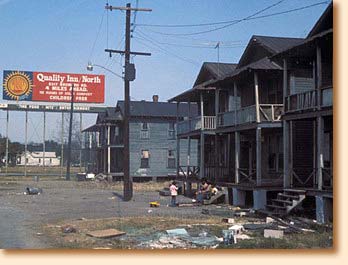 |
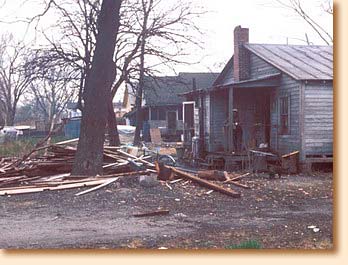 |
| | |
|
Coming from a middle-class environment as I do I found it
overwhelming to live entirely in ghetto homes for an extended
period and experience the overcrowding, persistent noise, and
psychic oppression. After a while I have to find more affluent homes and spend some
days in my own room and get peace of mind. |
| | |
|
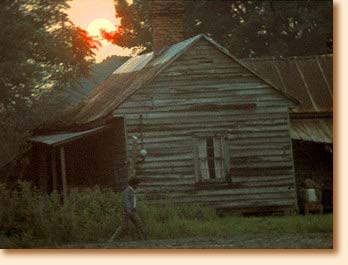 |
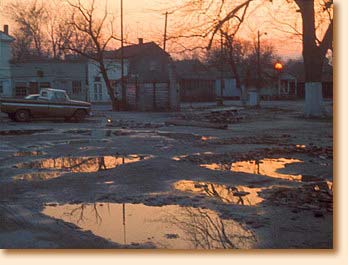 |
| | |
|
But soon I am so bored here that I search again for the more
unvarnished human contacts in ghetto homes.
|
| | |
|
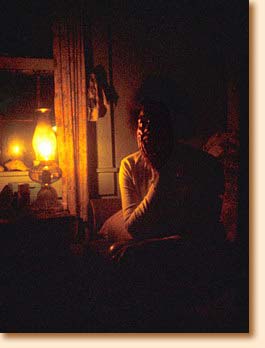 |
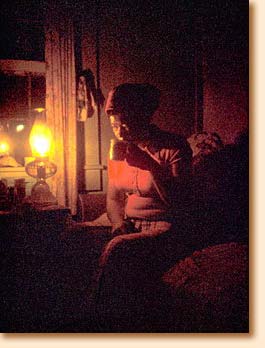
|
| | |
|
In Washington, North Carolina, I first lived
in four black homes in town, three of which were without electricity and
running water. When I stayed with the young women pictured by the kerosene lamp
I had to sleep all night in an armchair as they were sleeping on a couch with a
baby. There was no more room in the house.
|
| | |
|
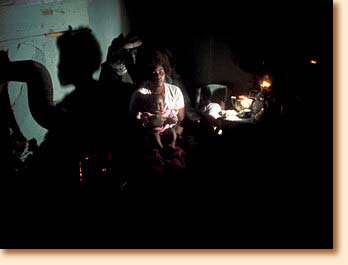 |
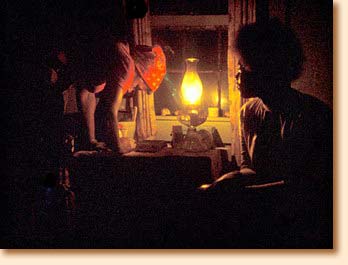 |
| | |
|
My situation was even worse the next night in a shotgun shack where the
mother screamed all night in a piercing soprano at her son, because he had
brought a white guy home to share his bed. I hid his pistol in a stack of
clothes for fear that they would use it against each other.
|
| | |
|
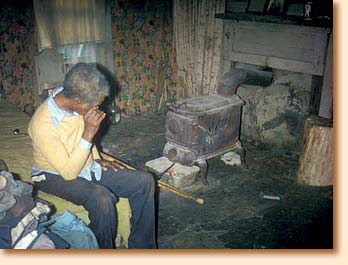 |
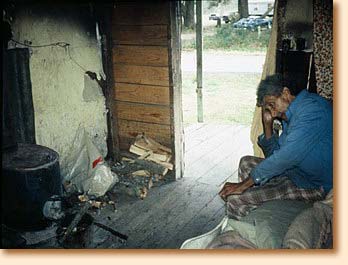 |
| | |
|
In another shack I was kicked out by an angry neighbor who hated whites. The
conditions in these homes were so miserable that in the end I walked around
with a constant headache from hunger and lack of sleep. Late one evening I felt
so sick and defeated by tiredness that I went towards the jail hoping to get
permission to spend the night there - an escape I had never sought before.
|
| | |
|
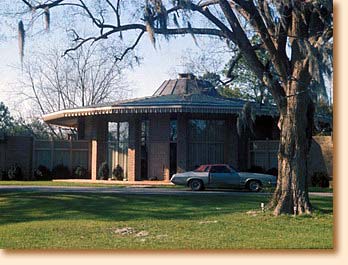 |
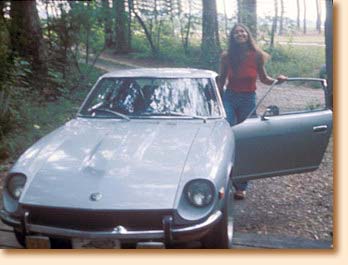 |
| | |
|
But as always when I went through pain and suffering the gates
to heaven opened up. Without this - almost religious faith - the vagabond cannot
survive. Just before the jail a young woman picked me up and took me to her home which turned out to
be one of the most sumptuous I had been in for a long time.
|
| | |
|
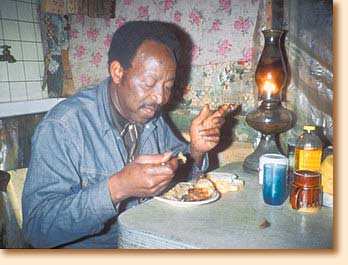 |
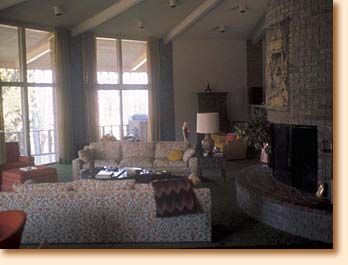 |
| | |
|
There were private
tennis courts and golf courses as large as half the ghetto in that town, a
private indoor swimming pool - even airplanes and sailboats.
|
| | |
|
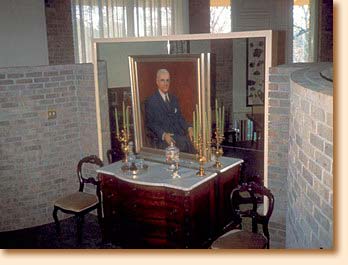 |
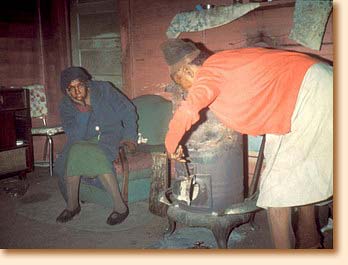 |
| | |
|
In the ghetto
homes I had been able to hear all outside and private sounds through paper-thin
walls.
|
| | |
|
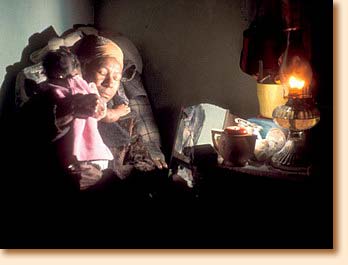 |
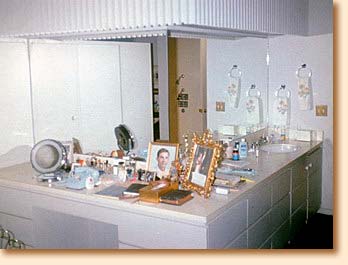 |
| | |
|
Here we had to have an intercom to communicate between the different
sections of the house. There was even an indoor fishpond as big as some of the
pools in the shacks when it rained.
|
| | |
|
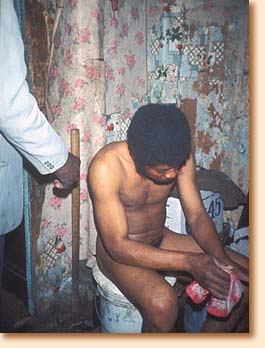 |
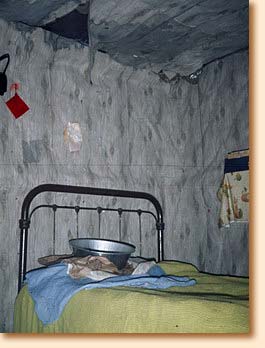 |
| | |
|
Where had all this abundance come from? The
answer is not always so simple, but people later told me that the woman's
father, a lawyer, owned many of the dilapidated ghetto shacks in the town, a
town where 60% live below the poverty level.
|
| | |
|
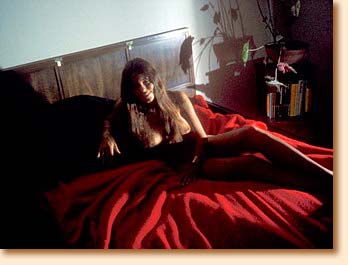 |
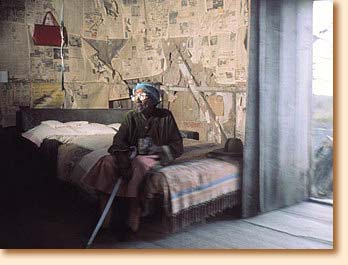 |
| | |
|
Why had I ended up in his home when the misery he helped create
in the ghetto had practically driven me into prison?
|
| | |
|
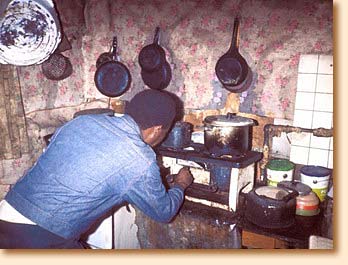 |
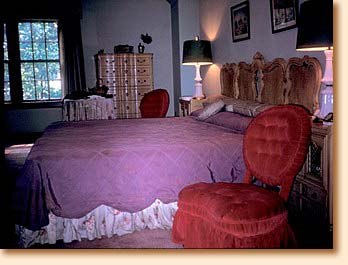 |
|
|
|
I began to feel how privileged I was as a white and how
everything is pushing foreign visitors and immigrants in on the white side of
racial oppression in America.
|
| | |
|
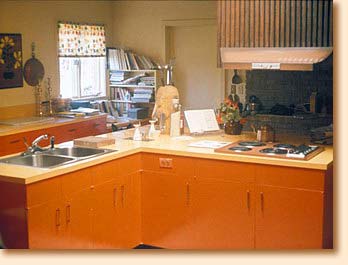 |
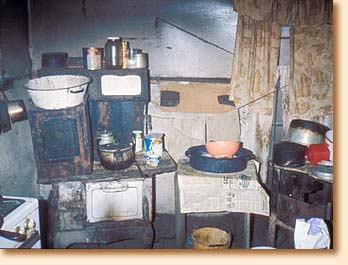 |
|
|
|
Others were not quite so lucky and at that moment a black woman whose family I
had come to know was in the city jail.
|
| | |
|
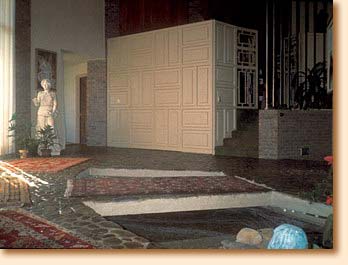 |
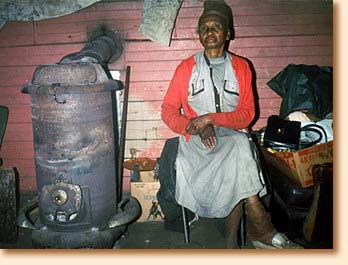 |
|
|
|
Here she was raped by a guard and became a celebrity because she
killed the white rapist.
While the
rape of blacks by whites is not unusual in southern jails, it created a
sensation because she, Joanne Little, had the courage to kill the white rapist.
|
| | |
|
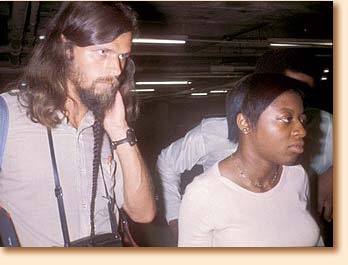 |
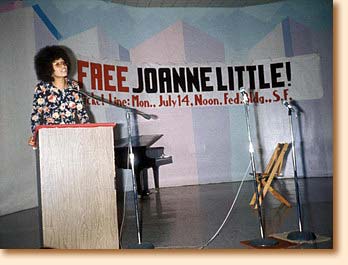 |
|
|
|
Without the worldwide support of human rights groups
(to which I was lucky to be able to supply photos of her background situation),
Joan Little (seen with me here) would doubtless have been sentenced to death in this state where even
burglary is punishable by death.
|
| | |
|
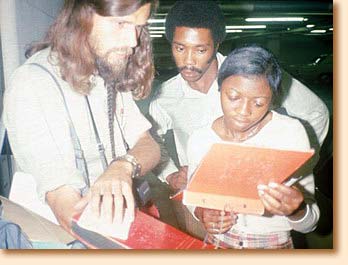 |
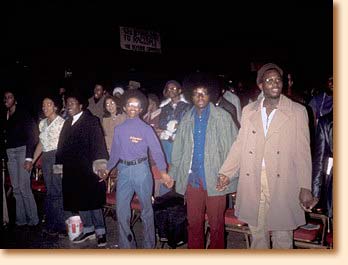 |
|
|
|
Her acquittal was a great victory as it showed
that the traditional legal proceedings in a southern state could be changed -
even in a state which at first had declared Joanne Little an outlaw, which
means that every citizen of the state had a right to kill her. Alone in practicing the death penalty among developed countries,
America is increasingly the focus of world wide human rights protests. |
| | |
|
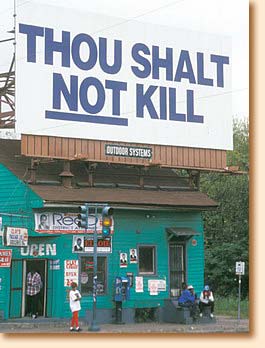 |
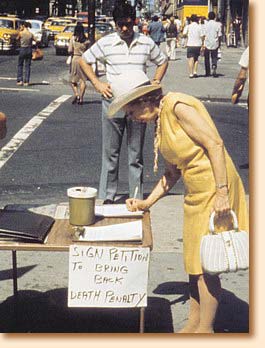 |
|
|
|
Even the most oppressive countries such as South Africa and the
former communist have now outlawed this government controlled human rights
abuse. Everywhere children are born open-minded and with zest and love
of life. But in America this innocence is very early brutalized by their
government's hurtful and confusing message - that it is o.k. to take human life!
|
| | |
|
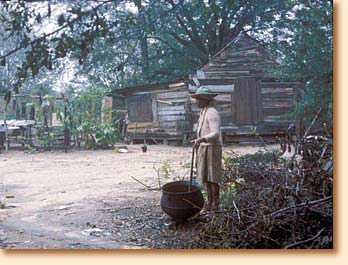 |
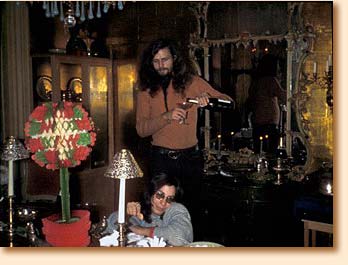 |
|
|
|
The psychic leaps I took in Joanne Little's town also gave me an
insight into the economic preconditions of white supremacy. Such journeys of contrast are necessary in order to see society
clearly.
|
| | |
|
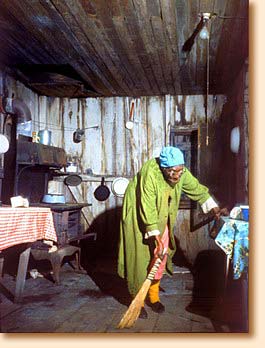 |
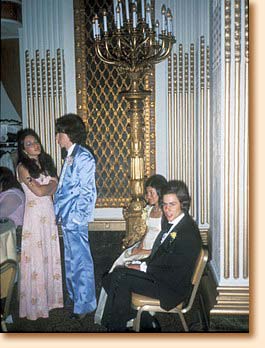 |
|
|
|
I find it, for instance, impossible to stay very long in white
homes before I start looking with their eyes upon blacks as inferior human
beings. Such a view oppressors develop everywhere in the world towards
people they have hurt.
|
| | |
|
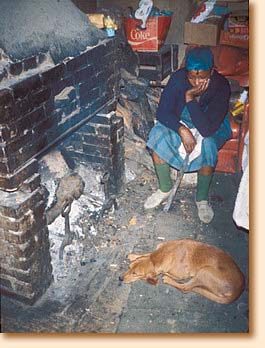 |
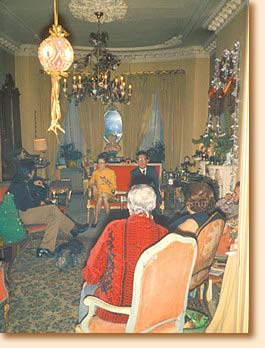 |
|
|
|
I always allow myself to be open to such brainwashing, for if
you do not try to enter into the thinking of American whites, you have no hope
of liking them and understanding the hurt they go through early in childhood
when as open and loving children they have to learn to dehumanize people, who
are often their closest neighbors.
|
| | |
|
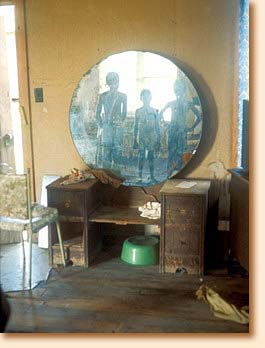 |
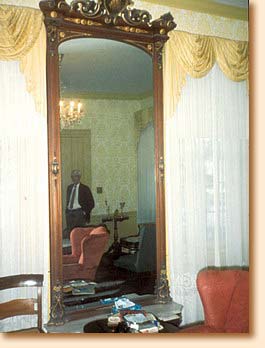 |
| | |
|
Without understanding their deeper motivations and pain I would
not be able to understand how the racism they unhappily inherited from slavery
can go on - generation after generation.
|
| |
|
|
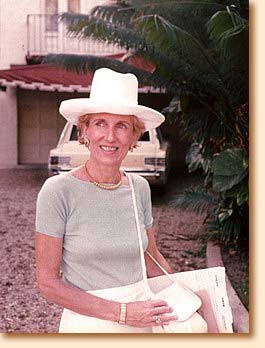 |
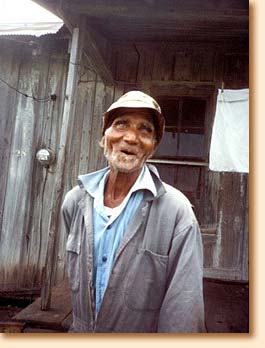 |
| | |
|
In my vagabond days I could in time break out of this
brainwashing and move back to the different impact of the black community.
|
| | |
| | |
|
|
| | |